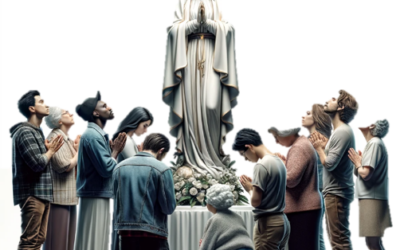If you read just about any book about Buddhism, you will come across the famous “arrow parable.” Buddha is said to have utilized this parable when one of his disciples asked him questions that went beyond what Buddha saw fit to answer, such as questions about the nature of the cosmos, of man, and of existence after death. Buddha did not believe these inquiries were useful in one’s quest to escape suffering and realize Nirvana, and he assumed this quest to be the only thing pertinent in one’s search for truth. This arrow parable is still often used today to deflect some of man’s deepest questions, writing them off as simply irrelevant. Buddhist proponent Walpola Rahula, for example, writes that this parable:
“should do good to many millions in the world today who are wasting valuable time on such metaphysical speculation and unnecessarily disturbing their peace of mind”1
The parable is as follows:
“Suppose a man is wounded by a poisoned arrow, and his friends and relatives bring him to a surgeon. Suppose the man should then say, ‘I will not let this arrow be taken out until I know who shot me; whether he is a Ksatriya (of warrior caste) or a Vaisya (of the trading or agricultural caste) or a Sudra (of the low caste); what his name and family may be; whether he is tall, short, or of medium stature; whether his complexion is black, brown, or golden; from which village, town or city he comes. I will not let the arrow be taken out until I know the kind of bow with which I was shot; the kind of bowstring used; the type of arrow; what sort of feather was used on the arrow and with what kind of material the point of the arrow was made.’ That man would die without knowing any of these things”2
Buddha goes on to say that he has explained suffering, the source of our suffering, the end of suffering, and the way leading to the end of suffering. This is all that a person needs to know. Everything else is a distraction.
There is, of course, a certain truth in the arrow parable. There are times when a person can be led astray from what is most important by their curiosity to know things that often cannot be known or that are ultimately irrelevant to any meaningful purpose. The problem comes when it is applied against any and all questions, or against important and highly relevant questions that present serious challenges to the system the parable is being used to defend.
One of the questions the disciple in the story above is said to have been asking, for example, is whether or not a fully enlightened person still exists after death. In other words, when one escapes the suffering cycle of death and rebirth, in what state are they then? What does realizing Nirvana mean for the one who realizes it? This is not like asking what kind of feather is on the arrow. This is more like asking if pulling out the arrow will leave a gaping wound that will bleed me out and kill me faster than the poison. If I am offered an escape from the pain I feel in this life, but I am not told if that escape is non-existence, happy existence, or some kind of hell, how can I conclude that the offer is genuinely helpful or not? A man who offers to get me out of my monotonous, dead-end job but refuses to tell me whether he will do so by getting me a better job or by shooting me in the head does not alleviate the question by saying that it is irrelevant to my escape from the dead-end job. Any rational person can see the relevance.
Likewise, the arrow parable itself assumes that you already know a great deal on your own before the surgeon arrives. You know, for example, that an arrow hit you, and you already know that the arrow is poisonous. The surgeon didn’t teach this to you. You already knew all of this when you sent for him. You seem to know that the person who shot you is not still there shooting more arrows so that you can safely converse with your friends and family and with the surgeon. Buddhism, however, presumes to tell you what you do not already know about your suffering.
Imagine instead, then, that you are suffering a mysterious pain. You cannot find the source. A man comes up to you and says that your own desires are causing this pain, but that he knows a difficult procedure through which you can surgically remove your brain’s capacity to desire and you will never suffer again. You ask the man if you will actually survive the procedure, and if you do, will you be left in some sort of vegetative or comatose state? The man calls you a fool for asking such a silly and irrelevant question. It doesn’t matter. All that matters is getting rid of the pain, right?
Putting analogies aside, the truth is that Buddhism only makes sense if the world is a certain way. If God exists, if we are held morally accountable for all that we have done, if there is eternal life available in Jesus Christ and eternal hell and condemnation to all who do not turn from their sins and find grace in Him; in short, if anything that Christianity teaches is true, then Buddhism is grossly in error and offers an inadequate diagnosis and treatment for human suffering. The arrow parable doesn’t apply here. These are not irrelevant side issues. These are central matters which must be addressed, and no one serious about the truth can sidestep them on the basis of pithy storytelling.





